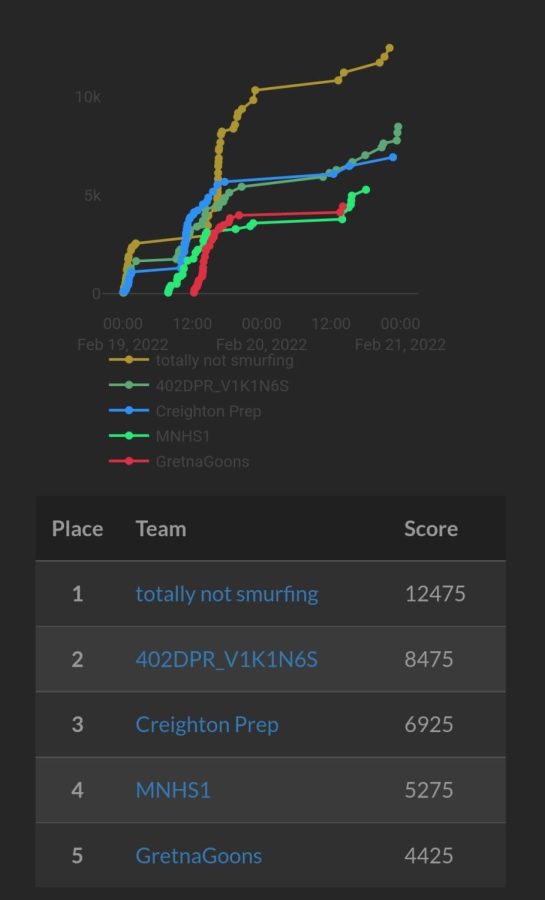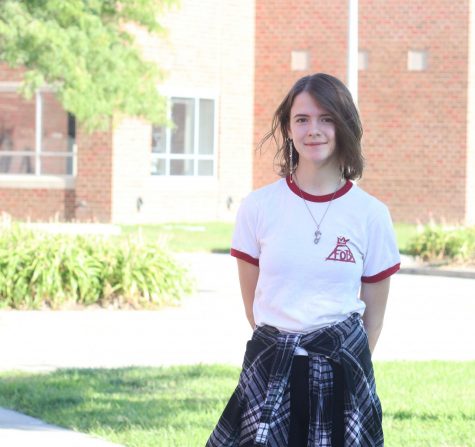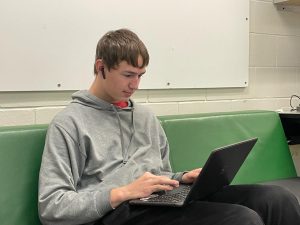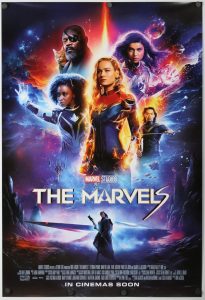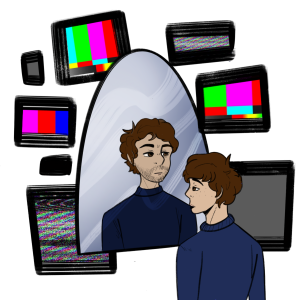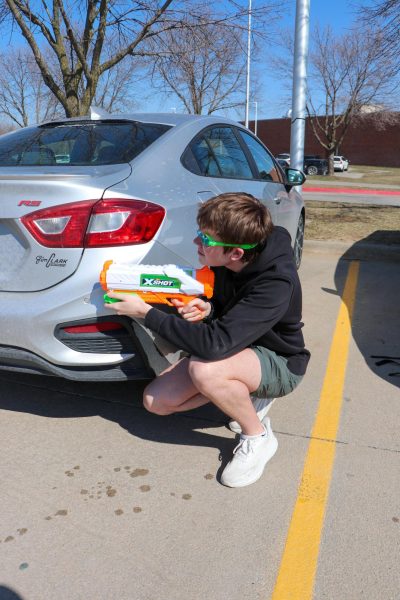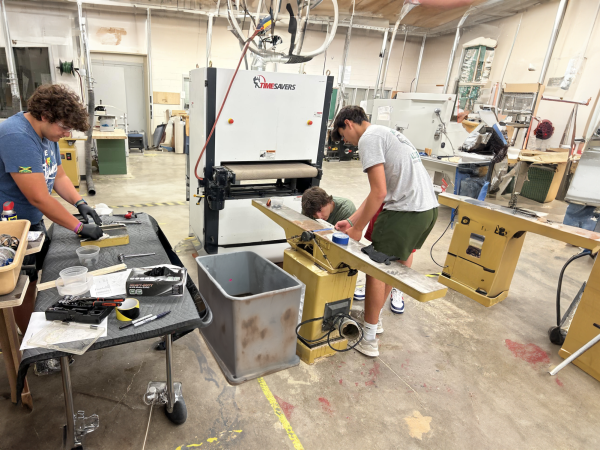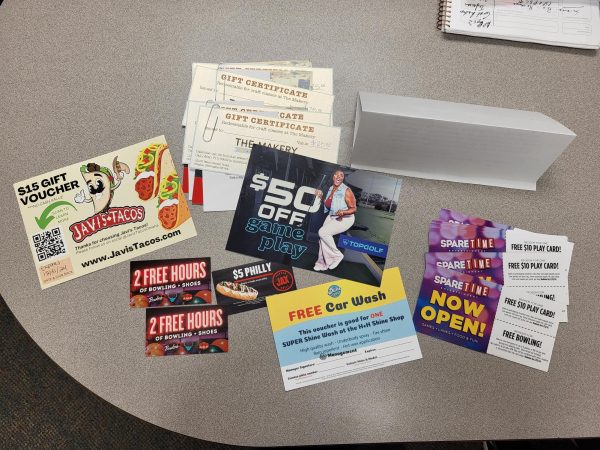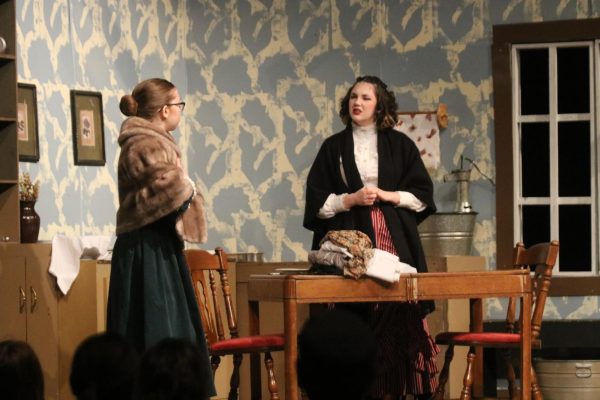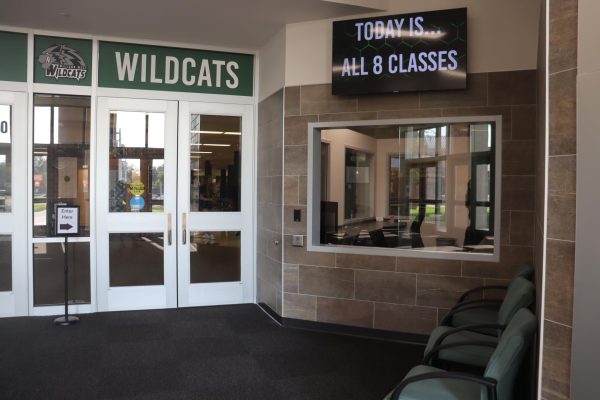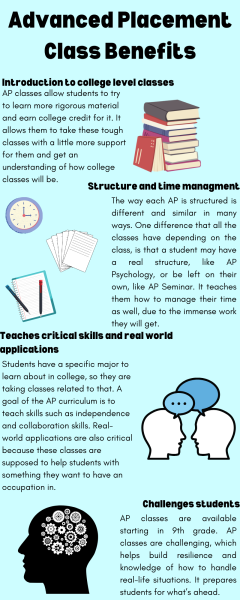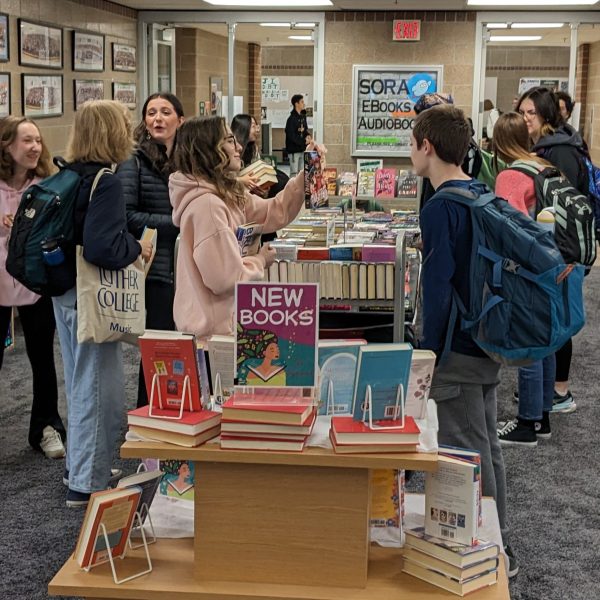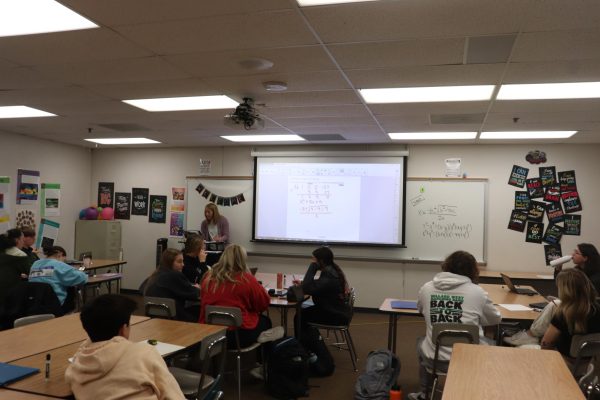Capture the virtual flag
Computer Science Club participate in UNO’s annual NULLify event
Photo courtesy of Cecilia Beckerbauer
While Millard West was lacking in the beginning, they had the lead, beating out their rivals. The final score was 12475, almost double the second place school’s score. “It went amazingly well,” senior Micheal Boehm said. “It was a great success for the computer science program here at West.”
March 3, 2022
Millard West’s Computer Science Club members logged onto their computers at midnight on Feb. 19, to compete in the annual University of Omaha Nebraska NULLify capture the flag event. While a challenging event this year, they were able to defend their first place title last won back in 2019.
NULLify, a student-led cybersecurity club at UNO, held the event. For the past 12 years, they have attended weekly capture the flag (CTF) events, both local and national. For the past nine years (with the exception of 2021 due to COVID-19), they have held their high school CTF event.
Only five high schools participated (Millard West, Millard North, Creighton Prep, Gretna and Omaha North) with a total of around 30 students taking part in the competition. In the past, 150 students attended with Council Bluffs and Lincoln schools participating as well. Those events were held in an eight-hour period for a single day; however, it was changed to accommodate the continuing pandemic. This year, the competition was virtual with students being given a 48 hour period from midnight on Feb. 19 to 11:59 p.m. on Feb. 20 to complete their set of challenges.
“Being virtual was definitely different,” cybersecurity UNO professor William Mahoney said. “Usually it is a live event with food, an award ceremony and lots of music and fun. We missed seeing all of the participants but we still wanted to host the event, so this was our solution. I hope we can do a combination next time, with many people in person and other schools participating remotely as well.”
Only three students from Millard West participated; however, alumni were allowed to attend the event due to its cancellation last year; six decided to take part who were a part of the club in 2021 when the event was canceled. Students logged on individually from the comfort of their homes and were given a wide range of challenges in a ”Jeopardy” style to complete. They were given questions with different categories each with different amounts of points that could be earned. Categories were based on the cybersecurity profession including areas focusing on reverse engineering, scripting and web exploitation. When a puzzle was solved, they were given a “flag” in the form of a code: NULL{aW3S0me}. It was then entered into a scoring form to award the team with points, assuming the puzzle was solved correctly.
“I completed most of my tasks before the end of the first 12 hours as the questions that I focused mostly on were in the topics of intro, cryptography and forensics,” junior and Computer Science Club president Cecilia Beckerbauer said. “Physically, I was beyond tired as I was trying to support my team by staying up for the 48 hours that we were competing. Mentally, I was super thrilled especially as our team started to pick up points and take a lead.”
The Millard West team was split between who were current students and alumni. Each group focused on a different area of questions and puzzles, and around the 14-hour mark, both teams were combined. This allowed all points to come together to give Millard West the lead that they were able to hold out for the duration of the competition.
West finished with 12475 points, almost double the team who came in second with only 8475 points. They were able to complete all questions— the first team since 2015 to do so and the second team since the beginning of the competition.
While it was a competition, students were able to gain a lot more from the experience than gaining the first-place title.
“It expanded my knowledge of the computer science field, but more specifically the cyber field,” senior Micheal Boehm said. “It expanded my technical knowledge of computer systems. I often struggle with putting theory into practice and this competition allowed me to prove myself in applying the theory that I know and applying it.”
The CSC hopes they will be able to return next year to an in-person event to continue their first-place streak, and they will take what they learned from the event and apply it to their lives.

